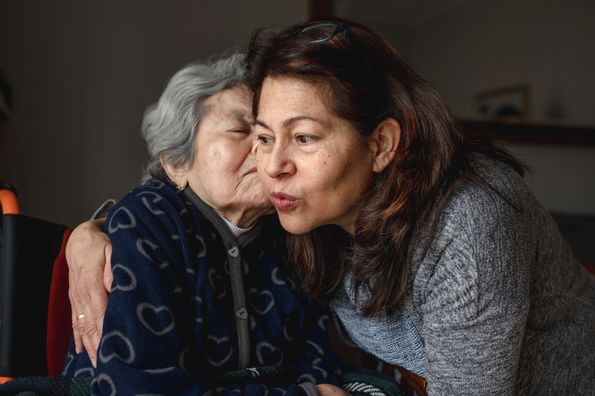Caregivers sacrifice a lot for those they care for, but, oftentimes, neglect their own health in the process. Between helping with everyday living, managing medical care and taking care of household activities, it is no surprise that many caregivers feel mentally and physically exhausted over time. To help prevent symptoms of “burnout”, we have compiled tips to recognize caregiver fatigue in yourself and others, as well as how to practice self-care in such a demanding role.
Unlike most professions, full-time caregivers rarely get the opportunity to separate from their role to relax and care for themselves, and over time, their commitment can take a toll on their overall health and well-being. Caregiver burnout, or fatigue, references a state of physical, emotional and mental exhaustion that arises as a result of being overworked and under cared for. The role of a caregiver requires an emotional and physical investment in someone else’s life, however, overworking yourself can negatively affect your work environment and those you care for. In order to continue to care for those who need you most, you must pay attention to your own body and take care of yourself when needed.
Causes
Caregiver burnout can be the result of a multitude of factors, and often arises from both physical and emotional demands. Common causes include:
Role Confusion
When you transition into a caregiver role, it is difficult to separate your personal relationship with a relative, loved one or friend from your job as their caregiver. This may cause administering “tough love” and making hard decisions challenging and confusing.
Unrealistic Expectations
Many caregivers hope that their care will improve their loved one’s condition or illness, however, this is rarely the case. While compassionate care helps keep the ill or elderly happy and comfortable, it is very unlikely that your care alone will change the circumstances of their condition. This mindset can be particularly challenging for those caring for someone suffering from an incurable, progressive disease such as Alzheimer’s or Parkinson’s disease.
Unreasonable goals
Many caregivers set unattainable goals for themselves and take on the burden of things that are out of their control. Other family members or friends may also expect too much from the caregiver, causing them to become exhausted and maybe even sick themselves.
Symptoms
Symptoms of caregiver burnout often stem from being overworked physically or financially, and may include fatigue, stress, anxiety and depression. While it is common for caregivers to feel extreme guilt when they take time for themselves, rather than devoting all their time to their elderly or ill loved ones, it is important to recognize changes in their mood and/or body. Signs to look for include:
- Irritability and hopelessness
- Changes in appetite or weight
- Changes in sleep pattern
- Weakened immune systems
- Loss of interest
- Withdrawal from family and friends
How to Care for Yourself
If you or someone you love are experiencing symptoms of caregiver burnout, or want to prevent it in the future, take time to consider the following self-care options.
Schedule Relaxation Time
Even if it’s only for a small period of time, it’s extremely important to schedule time to relax or participate in a hobby that makes you happy. Some great options include going for a walk or relieving stress through yoga.
Limit Your Responsibilities
As a caregiver, you must only commit to responsibilities that you can handle. Overscheduling is a common culprit of burnout and limits your ability to complete tasks comfortably and efficiently. Allowing yourself enough time for each task and responsibility will help you perform your job well and with the energy you need.
Ask for Help
It’s okay to ask for help, and even a small amount of assistance can make a huge difference when taking on such a large role. Family, friends or neighbors are great resources when seeking help you can trust. If you don’t feel comfortable reaching out to friends or family, there are many local hospice programs that can offer assistance.
Join a Support Group
There’s no better person to understand your situation than someone who has experienced it first-hand. There are many online and local support groups specifically for caregivers that offer advice and support from those with similar experiences and lifestyles.
Caregivers play a vital role in the health and happiness of those they care for, and, in order to care for others, you must first care for yourself. While tending to loved ones who are sick or elderly can feel all-consuming, it is important to slow down and listen to your body. Taking care of your health and wellness will not only allow you to better handle your responsibilities, but it will greatly improve the quality of care you are able to give. For more information on staying healthy, or to schedule an appointment at our BreakThrough Care Center, please visit https://www.dulyhealthandcare.com/services/breakthrough-care-center/.
Health Topics:







